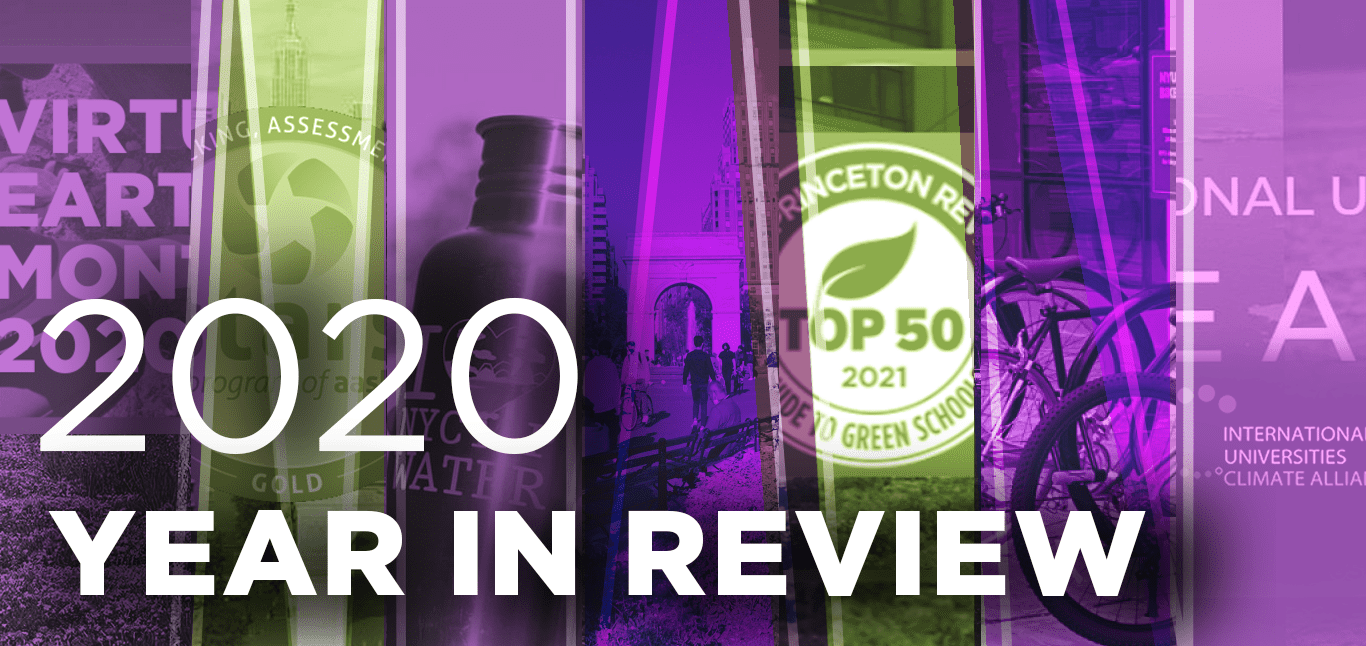2020 was a year unlike any other. We joined our colleagues and peers across NYU, the country, and the world in adapting and adjusting to the changes brought on by the COVID-19 pandemic, while continuing to progress in our sustainability work. In many ways, 2020 was an exceptional year for sustainability at NYU: we were recognized and ranked internationally for the collective efforts of students, faculty, administrators, and staff across the University; we launched new initiatives related to environmental and racial justice; and we joined a climate commitment aimed at food-related greenhouse gas emissions – our first non-building related pledge.
Category: Office of Sustainability

Gift Guide for the 2020 Holiday Season
The holidays may look a little different this year, but if you’re planning to still exchange gifts with colleagues, friends, and loved one, consider meaningful, but less wasteful, strategies to show that you care.

Reflections from Native American Heritage Month: Environmental and Social Justice Resources
November is considered Native American Heritage Month. It is a wonderful opportunity to celebrate the various cultures, art, and traditions of America’s Native peoples. The native experience and perspective are in no way a monolith, so here are some resources highlighting the diverse groups of people that have long worked to cultivate a more resilient, sustainable future.
NYU Makes Top 50 Green Colleges List
 NYU ranked #43 on the Princeton Review’s 2021 Top 50 Green Colleges list!
NYU ranked #43 on the Princeton Review’s 2021 Top 50 Green Colleges list!
The Top 50 Green Colleges ranks schools that have strong sustainability practices, academic opportunities, and a healthy quality of life for students.
Our commitment to sustainability is deeply valued by members of the NYU community. Our administrators are committed to incorporating sustainability policies and practices into their office operations; Faculty are leading sustainability research and instructing related courses; and students are engaged in peer-to-peer efforts through student government and clubs. Prospective NYU students are also concerned with our sustainability efforts. According to the Princeton Review’s College Hopes & Worries Survey, sixty-six percent of college-bound individuals and their families said that knowing a college’s commitment to the environment would affect their decision to apply to or attend a school.
Building Energy Scores Posted

Beginning in 2020, many NYC buildings are required to post letter grades that represent their energy efficiency performance, as the city strives to reduce both local pollutants as well as greenhouse gas emissions that cause climate change.
Under the NYC law, most buildings with over 25,000 square feet of floor area must report their energy usage each year, a process called “benchmarking”. A federal energy analysis tool called ENERGY STAR then assigns a 1-100 energy efficiency rating to the building – but only if it falls into a limited number of categories, including apartment buildings, student residence halls, hotels, K-12 schools, offices, supermarkets, and warehouses. Based on that score, buildings then receive a score of A (85-100), B (70-85), C (55-69), or D (54 or below). Buildings also may post an F (if they failed to submit energy use data) or N (if they are not required to report a letter grade, perhaps because ENERGY STAR does not provide a score for that building type).

